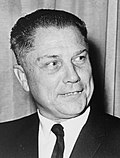| << | December 1971 | >> | ||||
|---|---|---|---|---|---|---|
| Su | Mo | Tu | We | Th | Fr | Sa |
| 1 | 2 | 3 | 4 | |||
| 5 | 6 | 7 | 8 | 9 | 10 | 11 |
| 12 | 13 | 14 | 15 | 16 | 17 | 18 |
| 19 | 20 | 21 | 22 | 23 | 24 | 25 |
| 26 | 27 | 28 | 29 | 30 | 31 | |



The following events occurred in December 1971:
Contents
- December 1, 1971 (Wednesday)
- December 2, 1971 (Thursday)
- December 3, 1971 (Friday)
- December 4, 1971 (Saturday)
- December 5, 1971 (Sunday)
- December 6, 1971 (Monday)
- December 7, 1971 (Tuesday)
- December 8, 1971 (Wednesday)
- December 9, 1971 (Thursday)
- December 10, 1971 (Friday)
- December 11, 1971 (Saturday)
- December 12, 1971 (Sunday)
- December 13, 1971 (Monday)
- December 14, 1971 (Tuesday)
- December 15, 1971 (Wednesday)
- December 16, 1971 (Thursday)
- December 17, 1971 (Friday)
- December 18, 1971 (Saturday)
- December 19, 1971 (Sunday)
- December 20, 1971 (Monday)
- December 21, 1971 (Tuesday)
- December 22, 1971 (Wednesday)
- December 23, 1971 (Thursday)
- December 24, 1971 (Friday)
- December 25, 1971 (Saturday)
- December 26, 1971 (Sunday)
- December 27, 1971 (Monday)
- December 28, 1971 (Tuesday)
- December 29, 1971 (Wednesday)
- December 30, 1971 (Thursday)
- December 31, 1971 (Friday)
- References








